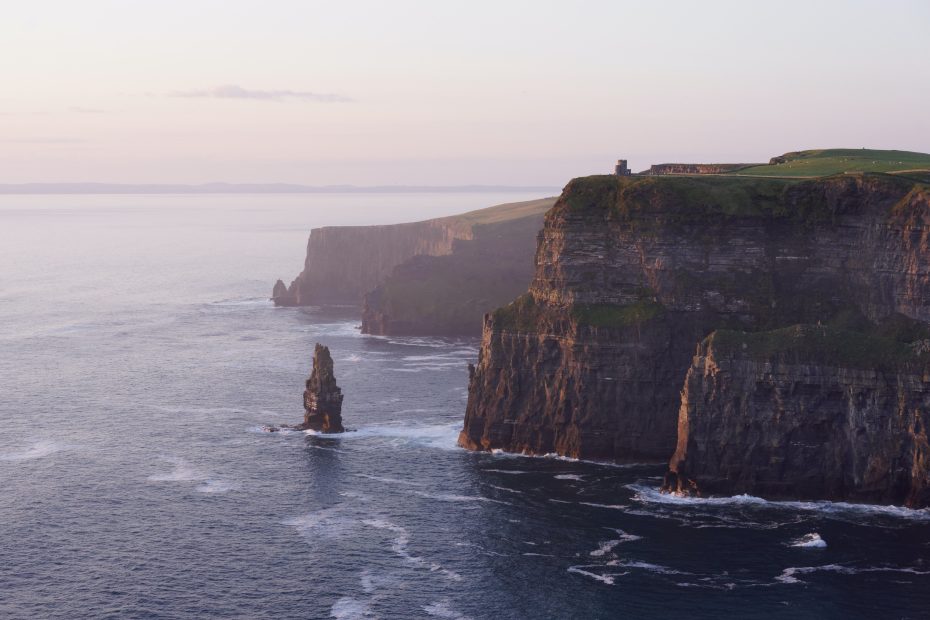Table of Contents
Introduction
The vibrant city of Galway on Ireland’s west coast is known for its rich fusion of cultures. As a major port city for centuries, Galway has welcomed influences from near and far while also preserving its distinct Irish heritage. Today, Galway offers visitors a taste of traditional Irish culture alongside food, music, and architecture reflecting its diverse population. Galway’s annual festivals celebrate the city’s unique multicultural history.
History of Galway as a port city
Galway’s strategic position on Ireland’s west coast made it an important port and center of trade starting in the medieval era. Goods from foreign lands flowed through Galway, which was one of the most significant ports in Ireland. The city thrived on commerce with countries like Spain, France, and England. This influx of goods and people contributed to making Galway an eclectic melting pot.
Influences from other cultures
Galway absorbed influences from various cultures that passed through its port. The Spanish were among the first foreigners to make their mark on Galway. In the 16th century, Spanish traders arrived in Galway with goods like wine and olive oil. Many Spanish sailors also settled in Galway and married locals. The Spanish legacy remains evident in Galway’s architecture, with prime examples being the Spanish Arch and Lynch’s Castle.
Additionally, France left its imprint on Galway’s culture. Wealthy French merchant families established themselves in Galway in the late 1600s. The longstanding wine trade with France led to their influence on Galway’s cuisine and even language, with some locals integrating French words into their vocabulary.
While the English controlled Galway for centuries, the city still managed to retain its unique character. English rule may have suppressed aspects of Gaelic culture, but diverse communities integrated into Galway life over time.
Traditional Irish culture in Galway
Today, Galway proudly upholds its Irish traditions while acknowledging its multiculturalism. Music, dance, language, food, and more highlight the city’s Irish roots. Live music pubs feature Irish ballads, jigs, and reels from fiddles, tin whistles, and more. Dance schools teach long-established Irish step dancing. While English is primarily spoken, many locals still know phrases or songs in Irish Gaelic. Classic Irish fare like seafood chowders, smoked salmon, soda bread, and Galway lamb stew appear on most menus.
Festivals celebrating Galway’s diverse heritage
A packed calendar of unique festivals celebrates Galway’s cultural fusion. The Galway International Arts Festival in July hosts comedy, theatre, music, and street performances from Irish and international artists. The lively Galway Races in August revolve around Irish horse racing, drawing over 150,000 visitors. September brings the Galway Food Festival, highlighting Irish cuisine and global influences on the city’s food.
Entertainment and nightlife
Galway’s compact center provides endless entertainment options. Streets like Quay Street, Cross Street, and High Street contain an array of lively pubs where visitors can enjoy live music, dancing, and camaraderie with locals. For independent films and late-night comedy shows, students and young professionals flock to venues like the Róisín Dubh and the Black Box. Those seeking upscale cocktails in a historical setting can visit Hotel Meyrick, frequented by literary greats like W.B. Yeats.
Architecture in Galway
Galway’s architecture provides visual evidence of its cross-cultural history. The Spanish Arch by the River Corrib marks one entrance to the medieval city and the Spanish merchants who traded here. Lynch’s Castle with its Tudor-style façade stands as a symbol of Galway’s Anglo-Norman influence. Eyre Square in the city center is named after Mayor Edward Eyre who constructed the square in 1710. Surrounding Eyre Square is an array of colorful buildings housing restaurants and shops.
Conclusion
Galway emerges today as both quintessentially Irish and wonderfully cosmopolitan. It is a city proud of its enduring Gaelic traditions, while also celebrating the many cultures that have shaped Galway over the centuries. For any visitor seeking to experience Galway’s one-of-a-kind cultural fusion, the energy and diversity of this coastal city consistently enchants.
FAQs
What are some examples of Spanish architecture in Galway?
Two prime examples are the Spanish Arch and Lynch’s Castle. The Spanish Arch was part of Galway’s medieval system of walls and a place where Spanish merchants could trade goods. Lynch’s Castle with its Tudor façade was built by the 14 Tribes of Galway, one of which was the Lynch family of Spanish descent.
What festivals take place in Galway?
Major annual festivals include the Galway International Arts Festival, Galway Races, and Galway Food Festival. These festivals showcase local and international talent in areas like comedy, theatre, music, dance, horse racing, and cuisine.
How did English rule impact Galway?
While English rule starting in the 1300s suppressed aspects of Gaelic culture in Galway, the city still retained its multicultural spirit. Diverse communities like Spanish, French, and Irish continued to coexist and integrate in Galway over the centuries.
What are some quintessential Irish foods to try in Galway?
Classic Galway and Irish foods to try include seafood chowders, fish and chips, smoked salmon, Irish stews, shepherd’s pie, brown bread, Irish soda bread, and Galway lamb stew. Pair them with Irish beer and whiskey for an authentic Irish food experience.
Where are the best areas to experience Galway’s nightlife?
The best streets for nightlife are Quay Street, Cross Street, High Street, and Shop Street. Here you’ll find lively pubs hosting live music and dance as well as comedy clubs and venues for alternative entertainment. Top picks include Róisín Dubh, the Black Box, and Hotel Meyrick.
